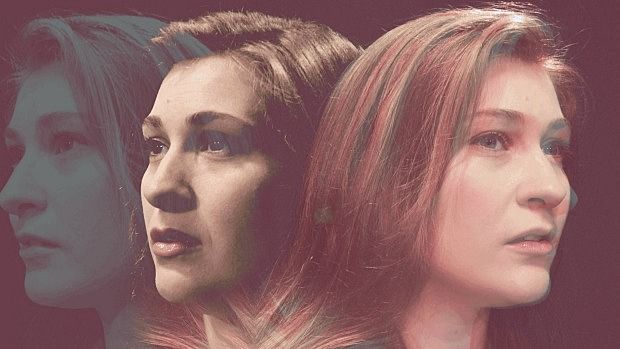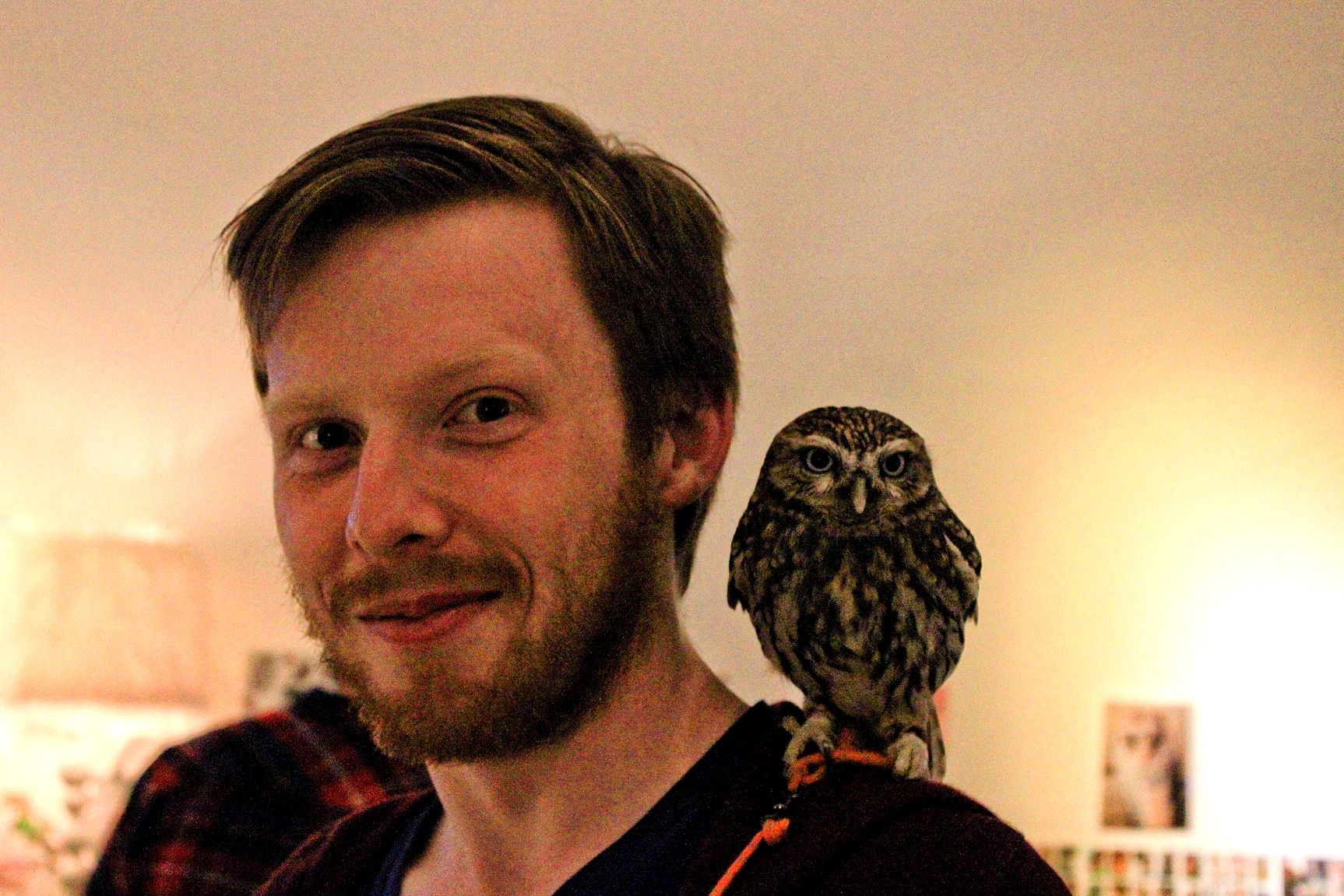Review: Spring Awakening
Adam Goodall reviews Spring Awakening at BATs Theatre
There have been many translations of Spring Awakening, Frank Wedekind’s play about a class of fourteen year olds suffering through their sexual awakenings under the hypervigilant gaze of their conservative community. Each of these translations incorporates something of the translator’s own curiosities and concerns. That’s reflected in their size - some run 80 pages, some 160, and others find their end in between.
Keagan Carr Fransch and Samuel Phillips have reworked Wedekind’s evergreen script even further, their adaptation clocking in at a lean 70 minutes. In so doing, they’ve jettisoned most of the specifics. Characters talk about school and sex and philosophy and religion, but there’s very little context pinning these discussions to the play’s traditional setting, turn-of-the-century Germany. Their emphasis is on the universal.
That doesn’t stop them drawing on other influences, though. There are shades of Gus Van Sant’s elliptical school shooting drama Elephant, David Robert Mitchell’s unnerving It Follows, Peter Weir’s dreamlike Picnic at Hanging Rock. But the one that I can’t shake, the one I wrote in big block letters on the fourth page of my notes, is the one that, perhaps, speaks best to Fransch and Phillips’ own curiosities and concerns. It’s Stanley Kubrick’s austere horror, The Shining.
With a perpetual wind howling through the space and cold lights casting shadows across the children, Fransch and Phillips’ Spring Awakening seems to play on Kubrick’s brand of horror, still, sterile, surreal. The colour palette has an eerie, antiseptic quality: the children all wear white and beige baptism ensembles and Janis Cheng’s blue and yellow lights wash everyone out, as if lit by a winter sun. The stage is set in the round, and a thin line of bark, hemmed in by two strips of brown wood, neatly divides the room in two. It’s reminiscent of a playground, a cute bit of irony from set designer Lucas Neal given the subject matter. More importantly, though, it creates a symmetry that abstracts the action. The actors drift around it like a monolith, the only thing anchoring them to a reality.
Oliver Devlin’s ambient electronic score pushes further into the ethereal, ebbing, flowing and weaving around constant squalls of wind. The actors move between scenes as if caught on those squalls, blown from place to place without a clear break between the two. That’s not to say they don’t feel alive or present; they’re always active, focussed on themselves and each other, even when they’re sitting or lying at the side of the stage while a scene plays out in the middle. The only things that pull their focus are the theatre exits, through which children exit and parents enter. Each time someone new steps into the arena, real or illusive, the lights get stronger and everyone gives the door their full attention. The exits develop into the show’s most striking visual metaphor, starting as a site of possibility and ending as a site of escape.
Fransch and Phillips pursue the truths that interest them with everything in their arsenal. The flipside of that, though, is that they sacrifice clarity for tone. This isn’t an inherently bad thing, mind. The play’s not especially difficult to follow, even as this staging drifts between straight presentation and a blurry distancing effect, and the occasional dropped detail can and does deepen the show’s sense of tragedy. It might sound counterintuitive, but we feel the children’s unravelling more when we get broader brushstrokes.
That said, this sacrifice of clarity means that sometimes things are confused when they don’t need to be confused and characters are left under-explored. For example, the scene in which Hänschen masturbates to the Venus of Palma Vecchio is complicated by the things that other performers are doing on the stage but outside of the scene. Meanwhile, it isn’t clear if the hurried conclusion to Martha and Thea’s budding lesbian relationship is a product of the play or Fransch and Phillips’ interpretation, but it feels like it’s been sold a bit short by whoever’s responsible.
The performances drift in weird directions, too. Acushla-Tara Sutton, Karin McCracken, Fran Olds and Tom Clarke are electrifying in their various supporting roles. They’re charismatic and fill the margins with thorny, entertaining contradictions. In particular, Sutton is charming and wonderfully relaxed as bohemian escapee Ilse, who treats her tumultuous life like a casual convenience, and Olds moves between extremes - softness, fury, agony, arch humour - with impressive dexterity and emotional openness.
In contrast, the leads feel less anchored. Brynley Stent plays tragic ignorant Wendla as a wide-eyed innocent with a crooked exploratory streak; to her, every transgression is an exciting discovery she can’t wait to make. She’s fun and open and internalises her traumas like she’s in a Lars von Trier film, but her energy and enthusiasm feels at odds with her peers. It can feel like she’s playing 12 while the rest are playing 14. Against her, Josh Cramond is beautiful but over-emphatic as the philosophical Melchior. Cramond settles into a strong, powerfully-felt pain and earnestness towards the end, but his line reads feel too recitative too often and he doesn’t imbue Melchior with the spark of an intellectual explorer.
That means it’s harder to buy into Melchior’s relationship with his friend Moritz, played as a fraying bundle of nerves and depression by Riley Brophy. Brophy’s effective at being the needy, inquisitive younger brother of the friendship, looking to Melchior for enlightenment and assurance, but Cramond’s doesn’t meet him halfway with his performance. Brophy’s also effective at playing the horror churning underneath, arguably the most effective of the trio. Moritz is slowly torn apart by an education system that crushes him with competition and a society that polices him with rigid, dangerous codes of sexual morality. In response, Brophy is fidgety and anxious. He talks like he’s running out of time.
Almost everyone in Spring Awakening lives out a tragedy, but Moritz’s story best encapsulates the slow, unfeeling terror of it all, right up to the desperate con he tries to run on Melchior at the end. Through Moritz, Wedekind and Fransch and Phillips make the forceful case that there is nothing more terrifying, nothing more disturbing than a society that refuses to educate its children and then stands back while they hurt each other through their ignorance - except, perhaps, a society that sees them hurting each other and responds with an indifferent, “We did our best.” Fransch and Phillips’ vision is of a chilly waking nightmare of social conservatism and righteous oppression, and it’s deeply, beautifully resonant.
Spring Awakening runs at
BATs Theatre
from January 27 - February 6
Buy your tickets here

